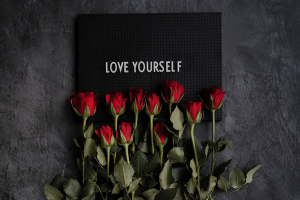Stop Using Mental Illness as Labels
In current times mental health information has become more visible and accessible to many of us. People are starting to learn a lot about a certain diagnosis or term, which can be really useful.
Unfortunately, partly due to several popular TV shows, movies, songs, and other media, several terms are used quite casually as an insult or a label to describe someone quickly.
This can be harmful. A mental health diagnosis is not a joke or a simple stamp you can put on someone. It is complex, the same disorder can look different on people and there are discussions within the mental health community if we should even label people this way.
Using these terms randomly and informally perpetuates stigma and should be used with caution in my opinion (I made a previous post “Stop Using Mental Illness as an Insult“).
You are not OCD. You have OCD. That’s an important distinction. I really wish people would stop labeling themselves – and others – with mental illness. In today’s post, I wanted to share some examples.
Narcissism – “He is so full of himself, what a big narcissist.”
OCD – “You are always so OCD about cleaning your room.”
Bipolar – “Yesterday you were still happy, how bipolar you are!”
Trauma – “This teacher traumatizes me with homework…”
ADHD – “Be quiet, it is like you have bad ADHD or what?”
Suicide – These awful songs make me so suicidal.”
Schizophrenia – “He is so weird, he almost looks like a schizo..”
Anorexia – “That dress is making you look anorexic.”
Depression – “I am depressed, there is nothing to eat!”
PTSD – “Your behavior is making me have PTSD.”
Addiction – “You seem drunk, don’t be such an addict.”
Psychosis – “Damm, she behaved like a complete psycho!”
While I want my mental illness to be acknowledged, I want every other part of me to be recognized too.
I understand that everyone, at least everyone with a mental illness, is entitled to speak about it in a way they feel most at ease. But it worries me that not doing so properly will hold up the unfortunate idea that invisible illnesses don’t affect you as much as physical ones.
It’s unfortunate that it’s the people with mental illness who are forced to educate those without. It shouldn’t be up to us. In a perfect world, people would accept that mental illness is a real, debilitating thing (well, in a perfect world mental illness wouldn’t even be a thing, but you get my point).
As a person with a mental illness who feels as though it’s my duty to educate those around me, I think it’s important that I refer to it properly. When I tell people about my bipolar disorder, I tell them that it’s something I have. That I live with. That I’m treated for.
I talk about it in the same manner that I would a physical illness. I never, ever refer to myself as a ‘bipolar person, because this will only further increase the assumption that a mental disorder is something that you are, and not what you’ve been diagnosed with.
I feel treating a mental illness the same as a physical when being vocal about it is an important way to gradually express that mental illness is real. That mental disorders warrant a diagnosis and they shouldn’t be treated in the same way as natural emotions.
And that’s the thing – talking about mental illness as something that we are and not that we have does this. People have got it into their heads that it’s okay to refer to their moods and personality traits as a mental illness.
When someone goes off into a fit of rage because someone’s upset them, after having been quite content beforehand, someone will label them ‘so bipolar’. This only adds to the stigma and misunderstanding around mental illness.
But how can people fully understand why this is wrong if they see people with mental illness speaking as though mental illness is something they are and not what they have?
I get it, mental illness is hard enough to deal with without someone telling you how you should or shouldn’t refer to it.
But I think that if we really want to get across how debilitating and life-consuming it can be, we can all make an effort to make sure we say it’s something we have, not something we are.
We need to make it clear that mental illness deserves the same respect as any other physical illness. We need to make it clear that our mental illness does not define us.





